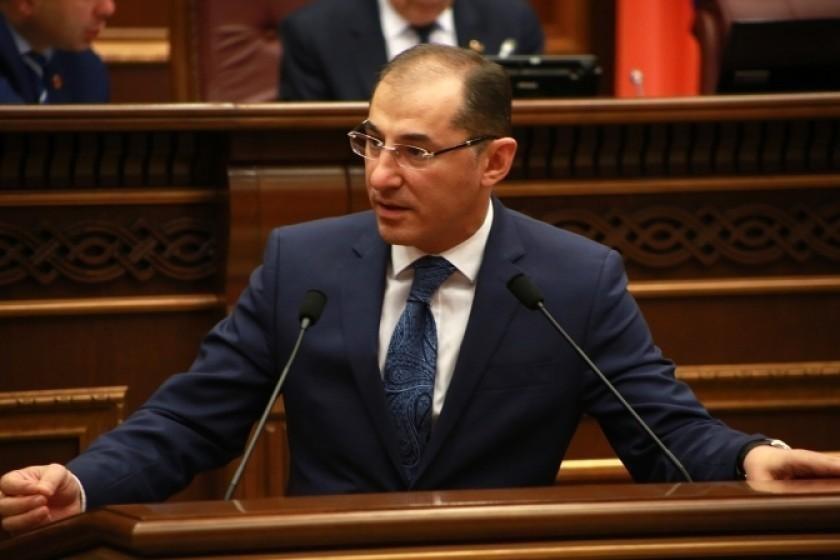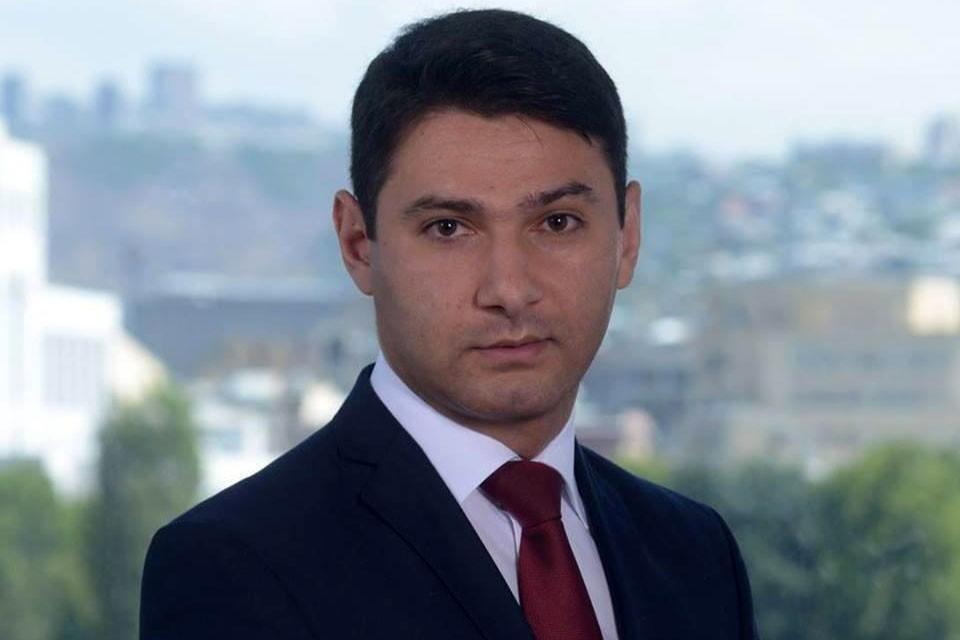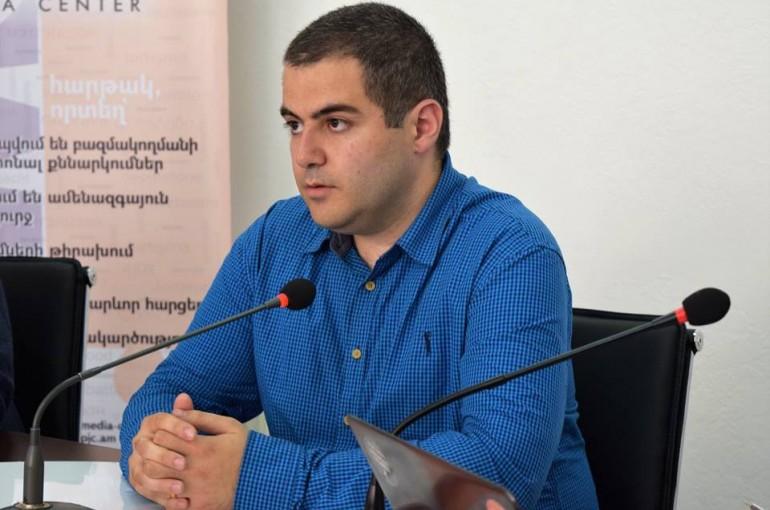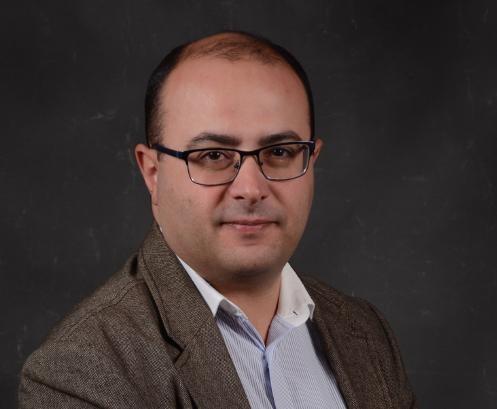
Armenian Government Proposes Universal Mandatory Income Filing: Is the Country Ready?
The Armenian government is planning to launch a universal income filing system, requiring citizens to periodically submit income disclosures to tax authorities.
The government has yet to provide specifics regarding the system, which will be a major change in the way citizens calculate and pay their income taxes.
Currently, taxes are automatically withdrawn from people’s wages and there is no income filing on a yearly or quarterly basis.
The new system’s effectiveness will largely depend on the main goals of the authorities in implementing this system. The goals are several: increase taxes collected from citizens, progressive income tax, reduce the shadow economy, collect the necessary database to assess the social status of the population, etc.
Potential obstacles to the system’s smooth launch are the low level of financial literacy and the country’s 23.5% poverty rate, among others.
The idea of introducing a general income declaration system in Armenia is not new. Vache Gabrielyan, Vardan Aramyan, Davit Ananyan and others, who held government positions in the economic sector over the years, floated this idea during the previous government.
Hetq spoke to them about the government’s current plan.
Former Minister of Finance Vardan Aramyan believes that the introduction of a comprehensive income declaration system is mandatory if Armenia wants to effectively redistribute income from the socially upper class to the lower class. This will create a new culture of tax liability, when not only the salary but also other elements of income are taxed.
Aramyan notes that the idea of universal declaration is correct, but emphasizes that it must be applied correctly, considering the level of financial literacy of the citizens of Armenia, the social situation, and the peculiarities of the economy.
"Back in 2008-2009, I was trying to promote the approach that people should be responsible for their income and taxes and submit a declaration. Meanwhile, today it is the burden of the employer. In Armenia, income tax is currently collected mainly from salaries, and other types of income, such as rental income, are almost non-existent. This is the main drawback of collecting income tax through today's tax authorities. It is not fair for a person to lease property for a few hundred thousand dollars, obtaining huge revenues, but not paying any taxes. In this case, the middle and upper middle class are more likely to benefit from economic growth than the lower class. Consequently, if the state does nothing, this situation will intensify. One million dollars in the hands of one person has a completely different economic effect than when that one million dollars is in the hands of 100 or 1,000 people. That's why the state is trying to ensure the redistribution of income through tax and expenditure policy, and one of the tools to strengthen its efficiency is the universal declaration of income,” Aramyan told Hetq.
When a flat income tax was introduced in Armenia (23% tax rate), which came into force on January 1 this year, the government announced that it would ensure the progressive nature of income taxation due to property tax and widespread declaration mechanisms. In other words, these two systems would allow for larger income recipients to be tax more.
Aramyan believes that the new property tax bill needs improving and the particularities of the social situation of the population should be considered. He says these features should be taken into account not only in the case of property tax, but also when introducing the institution of universal income declaration.
"If we really want to switch from salary tax to full income tax, if we really want to be able to collect taxes not only from salary but also from other incomes, if we want to redistribute income efficiently, then the institution of declaration is inevitable. This will increase the tax liability of everyone. It will be a completely new culture in our reality,” says Aramyan.
Aramyan believes that to introduce this system, both political will and a clear strategy on its application are needed, with a clear sequence of stages. This will require some degree of financial literacy. A problem can arise if it is decided to set a mandatory declaration requirement for everyone at once, because the educational level of the society is quite low. If this is not considered, everything will fail from the beginning.
"Ideas must be implemented correctly. At the heart of every reform is not only the idea but also the application. We might adopt a model that works well in the United States or another country, but in our country, Armenia, it will fail. Yes, people receiving an income should declare it, but certain thresholds must be set for taxation. The peculiarities of our population, economy and income must be considered, " Aramyan says.
The universal income declaration system in Armenia is widely criticized especially because it may target remittances from abroad for taxation.
"The solution is clear. Remittances should not be taxed, because they are considered non-taxable income. There is a risk that many will report their revenue as cash gifts. However, if the state finds out that they are cheating, they will be held accountable. In the beginning it will be like this. Some will start submitting false declarations, but when one day the taxman knocks on the door and fines them, citizens will be held accountable and will start filling in the blanks. It is necessary to strictly control the declarations of both ordinary citizens and those holding public office,” Aramyan says.
According to the former finance minister, citizens of Armenia today are not ready to immediately switch to a comprehensive declaration, both in terms of financial literacy and social status. He suggests introducing a comprehensive income declaration system step by step, first selecting a certain circle of citizens or areas whose financial literacy is higher to make it mandatory for them and to then prepare others to participate. Aramyan believes that the introduction of this system will provide additional tax revenues for the state budget, but that it should be developed and applied in such a way that these additional taxes do not come out of the pockets of the socially lower class.
"Even if a comprehensive declaration process is launched today, we cannot expect it to be implemented before 2022."
Economist Haykaz Fanyan, head of the ACSES research group, is in favor of the idea of introducing a universal declaration system in Armenia, but stresses that it should be developed in a way that does not lead to an increase in the tax burden for citizens. And if it will lead to an increase in the tax burden, it is not expedient to launch it now.
"We still have to analyze it. The main risk group here are people who receive income abroad and send it to Armenia. They don't pay taxes here. Even today's law stipulates that the difference between the tax paid abroad and the income tax set in Armenia will be paid in Armenia. But today no one does it or very few do,” says the economist.
Fanyan thinks that the Armenian government should use the double tax exclusion mechanism to placate these people. He notes that the authorities have declared that the project doesn’t aim to increase the tax burden, but seeks to get a picture of who has how much income, so that in the future, when the issue of state assistance arises, they can provide that support in a targeted manner. In that case, according to the economist, it would be more expedient to make a change to the Tax Code and simply exclude the taxation of the incomes from the sources operating in EEU territory.
"It will be an additional stimulus for people to declare their income. The state receives taxes from the mentioned amounts, when the same people build in the homeland and pay taxes from expenses.”
Fanyan is sure that even if the process of introducing a comprehensive declaration begins today, we cannot expect that it will be implemented before 2022. This system requires a high level of technical infrastructure.
"I am in favor of everyone filling out a declaration. Many people think that in case of income above any limit, the citizen should submit a new declaration. But if our goal is to understand the situation on the ground, then everyone should complete it. It is necessary to study the relevant experience to understand how to help people who will have a problem with financial literacy and other reasons when filling out the declaration. For example, in the United States, there is the universal declaration of income. Of course, there are people who have difficulties. In that sense, there is a solution to everything,” says the economist.
It is not yet clear what benefits citizens will receive when they start declaring their incomes. One of the advantages may be that the citizens, by declaring not only their income but also expenses, will be able to reduce their tax burden. As was mentioned, such a practice already exists in Armenia. People can get their income tax back if they have bought an apartment with a mortgage from the developers. In this case, the income tax is directed to the repayment of mortgage interest.
According to Fanyan, the state has obligations in the healthcare system, education, and other spheres, but due to limited income it is not able to fully implement its programs. It would be good for a part of the corresponding income to be directed, for example, to the reimbursement of expenses related to education, health expenses, etc.
"And at the same time, compulsory medical insurance can be introduced. In other words, we can use compulsory medical insurance at the expense of the income tax we pay. If the reduction mechanism works, people will be interested in declaring their income and expenses. Here the reduction of the shadow is not the main goal, but the secondary one. It is to imagine the social situation of the primary people. The mechanism of motivation is the mechanism of compensation,” Fanyan says.
Along with universal income declaration, Babken Tunyan, Chairman of the National Assembly’s Standing Committee on Economic Affairs, also spoke about the declaration of expenses. In a Facebook post, Tunyan noted that an opposition MP said that parallel with the declaration of income, there should be a declaration of expenses.
According to Tunyan, this is the version being discussed now. The system will also have a so-called social credit system. This means that there will be areas (such as tuition fees or health insurance) that will be deducted from the tax base. In other words, after paying income tax, citizens will list expenses as well and will get back from the state an amount corresponding to the tax in the amount of those expenses.
"Our fellow citizens will not suffer from the income declaration system, but will benefit from it," Babken Tunyan wrote on Facebook.
“This system aims to increase budgetary revenues”
Hrant Mikayelyan, an economist and researcher at the Caucasus Institute, believes that with the introduction of a comprehensive declaration system, the authorities are trying to increase budget revenues, as the economy is facing problems as taxes fall.
However, according to the economist, now is not the best time to increase the tax burden, and it would be more expedient to introduce the system, at least, to postpone it for a year, when the economy starts to show stable growth trends.
"Revenues from car imports played a big role in last year's budget. There is a source of secondary reduction in budget revenues. It has been talked about since the end of 2018 that the universal declaration system can operate in Armenia as of 2021. Now it is wrong to increase the tax burden. We have economic losses,” says Mikaelyan.
In addition to the risk of increasing the tax burden, he sees problems related to the financial literacy of the population. Many will have difficulty filing out the income return.
"The State Revenue Committee has done a lot of work to advance this system, but in my opinion, it is too early. First, the financial literacy of the population is not at a sufficient level and there is a lack of motivation. The main goal of the fight against the shadow economy is always to collect taxes. Even if it is done in full, the volume of budget revenues will not increase significantly, only transparency will increase, which in turn is important. Maybe the tax / GDP ratio will increase by 0.3-0.5 percentage points,” the economist notes.
Mikayelyan believes it would be wrong to tax remittances from abroad, at least initially.
He notes that in the last twenty years there has always been a temptation among Armenian authorities to tax transfers, but that money should not be touched because the indirect consequences will be more negative.
The expected changes in the property tax must also be considered. Here, too, the tax burden increases. Mikaelyan thinks that raising property taxes in general is right and has been needed for a long time. But the growth rate is higher than it could be today.
"We must use all possible tools to prepare people to fill out their income returns. Politicians must lead the way. This year we saw a big delay. By and large, the state wants to play a redistributive role. The economy must first earn that money. Maybe it would be correct to postpone the introduction of a comprehensive declaration system for a year,” says Mikaelyan.
“The technical side is quite solvable”
Ruben Osipyan, President of the Small and Medium Business Cooperation Association, says the introduction of a comprehensive declaration is a technically solvable issue. He makes the claim based on his conversations with computer programmers. Specialists can develop and provide a program that will allow you to submit declarations online.
What remains to be seen is whether people in Armenia are ready to sign on to such an initiative.
Osipyan emphasizes that the idea of declaring has existed for a long time, but the government has always postponed it. It’s an unpopular step.
"When I shared the information about the idea on my Facebook page, I received quite negative feedback from my friends. There is a lack of clarity of information. The government must provide information. People who complain about the comprehensive income declaration also complain that our healthcare system is not good. But shouldn't the state have the resources to improve the healthcare system? Protesters say low-wage earners should not be taxed. There must be systematic, well-calculated decisions,” says Osipyan.
Osipyan believes that when people calculate their own taxes and pays them, they will expect better state services in return.
As to whether people in Armenia are ready to pay additional taxes today, Osipyan says that if the government displays a commitment not to harm the people, but to introduce a really good and effective system, they will definitely find a solution there and the citizens the public will accept this system.
"I am not a specialist in the Tax Code, but I am almost sure that the law may avoid the taxing of remittances. A transfer from abroad will mean that the relative gives the money to his friend as a gift. And donations should not be taxed. I hear a lot of complaints from freelancers who work online today and receive money from outside, for example, programmers. They do not pay taxes for that money. They argue that a person who works and receives, say $2,000 a month, from overseas does not want to be taxed here and will go and live abroad. But if he went abroad, he would pay all those taxes, and more. And who said that freelancers should not pay taxes here. Honest employees should register,” says Osipyan.
 Videos
Videos Photos
Photos




Write a comment